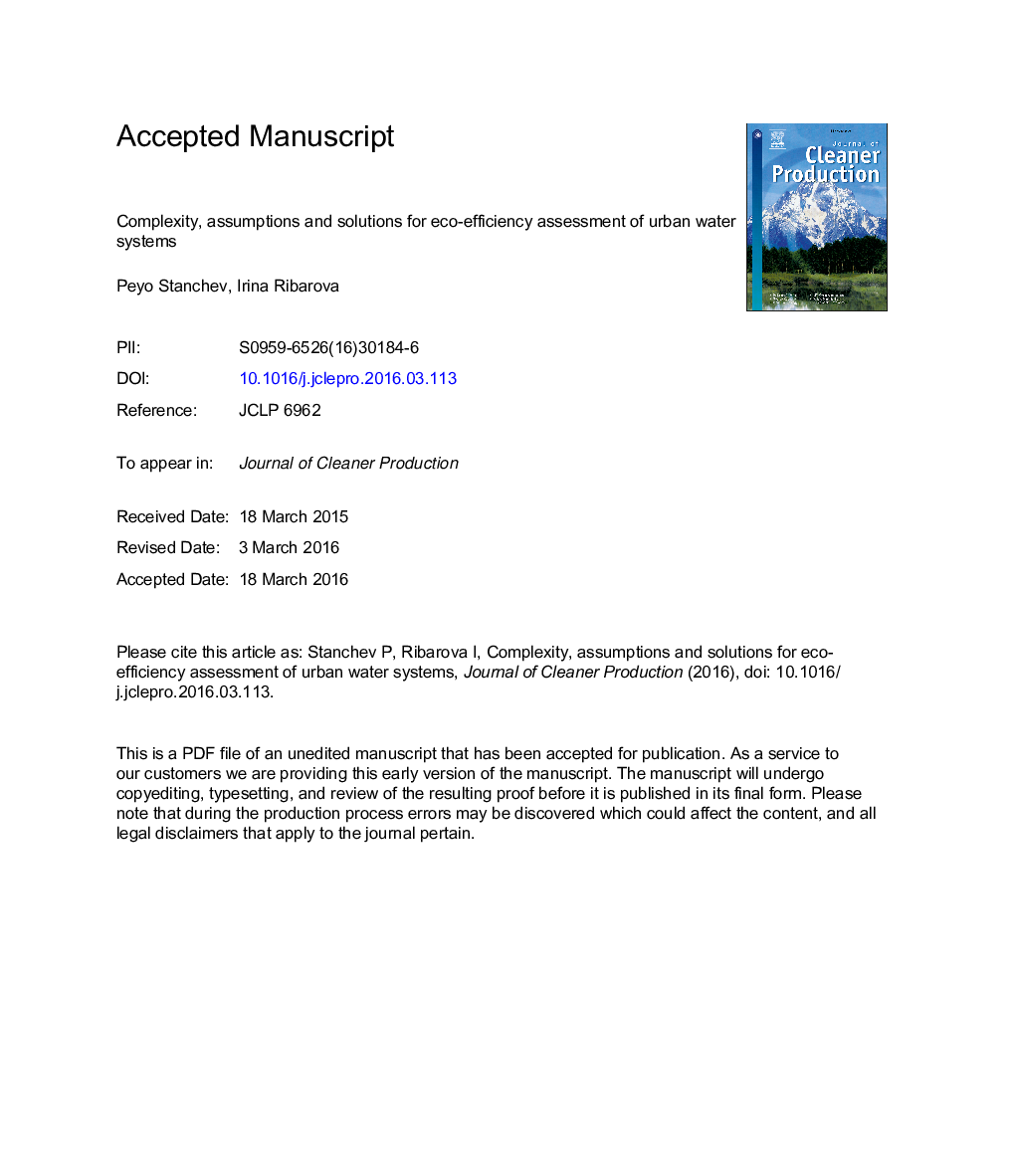| Article ID | Journal | Published Year | Pages | File Type |
|---|---|---|---|---|
| 5481769 | Journal of Cleaner Production | 2016 | 23 Pages |
Abstract
This paper addresses the application of the recently published international standard ISO 14045 on eco-efficiency assessment for urban water systems. While these systems are not “typical” product systems, the difficulties associated with their complexity and specificity are discussed. The study suggests the “number of households served” as appropriate functional unit of the system and “willingness to pay” as an appropriate monetary metric of the economic value to water customers. The feasibility of the suggested solutions is tested on the urban water system of Sofia. The test application shows that although some assumptions are necessary, the standard can be quite successfully applied to urban water systems. Another outcome of the test is that it revealed the gaps in the available data base. To overcome these, an approach to performing the necessary supporting calculations is developed and presented. From a practical point of view, the conclusion of the testing is that the background production of resources and energy has more significant environmental impact than the foreground system. Thus, the study indicates that background processes should be included in the environmental assessment if in-depth understanding of the wider environmental impact is sought. In general, the work extends current knowledge in two major respects: it is one of the first applications of ISO 14045 to urban water systems and one of the first determinations of eco-efficiency indicators of an urban water system which also considers the water use stage. The study provides reference values for twelve eco-efficiency indicators for urban water systems, which could be used in further research and by decision makers.
Related Topics
Physical Sciences and Engineering
Energy
Renewable Energy, Sustainability and the Environment
Authors
Peyo Stanchev, Irina Ribarova,
